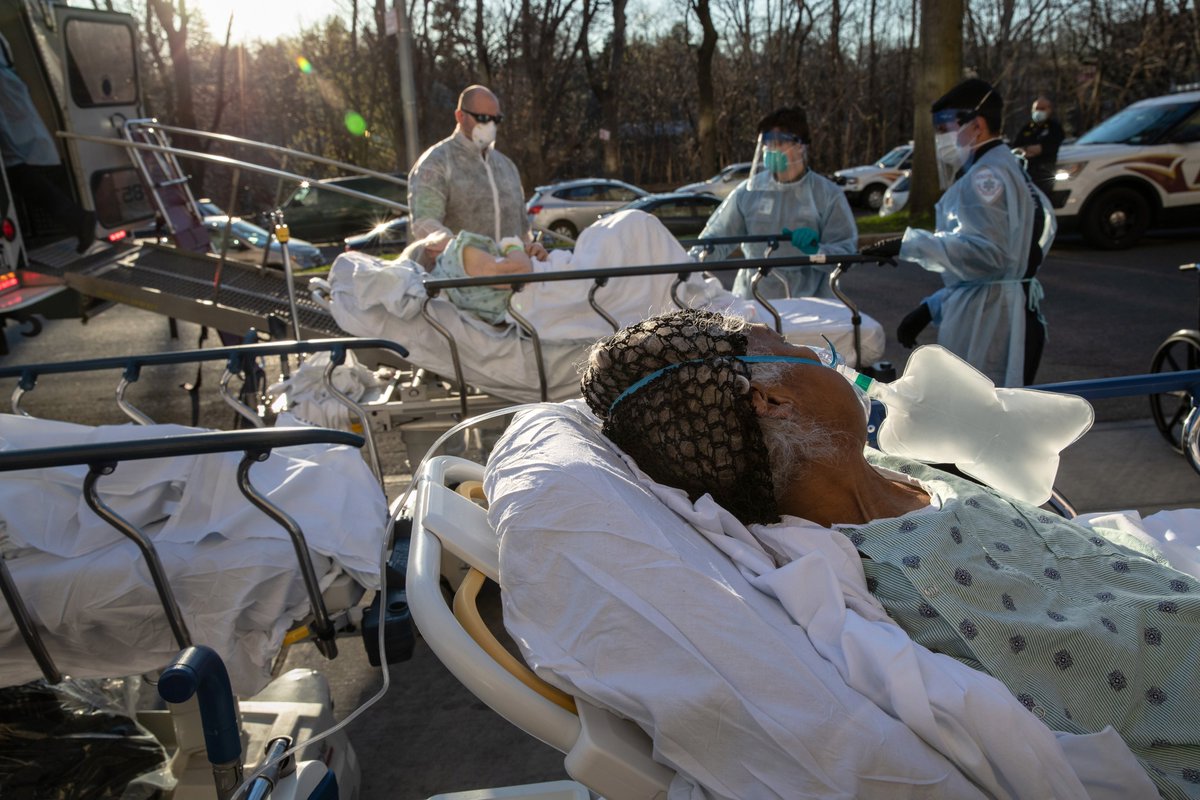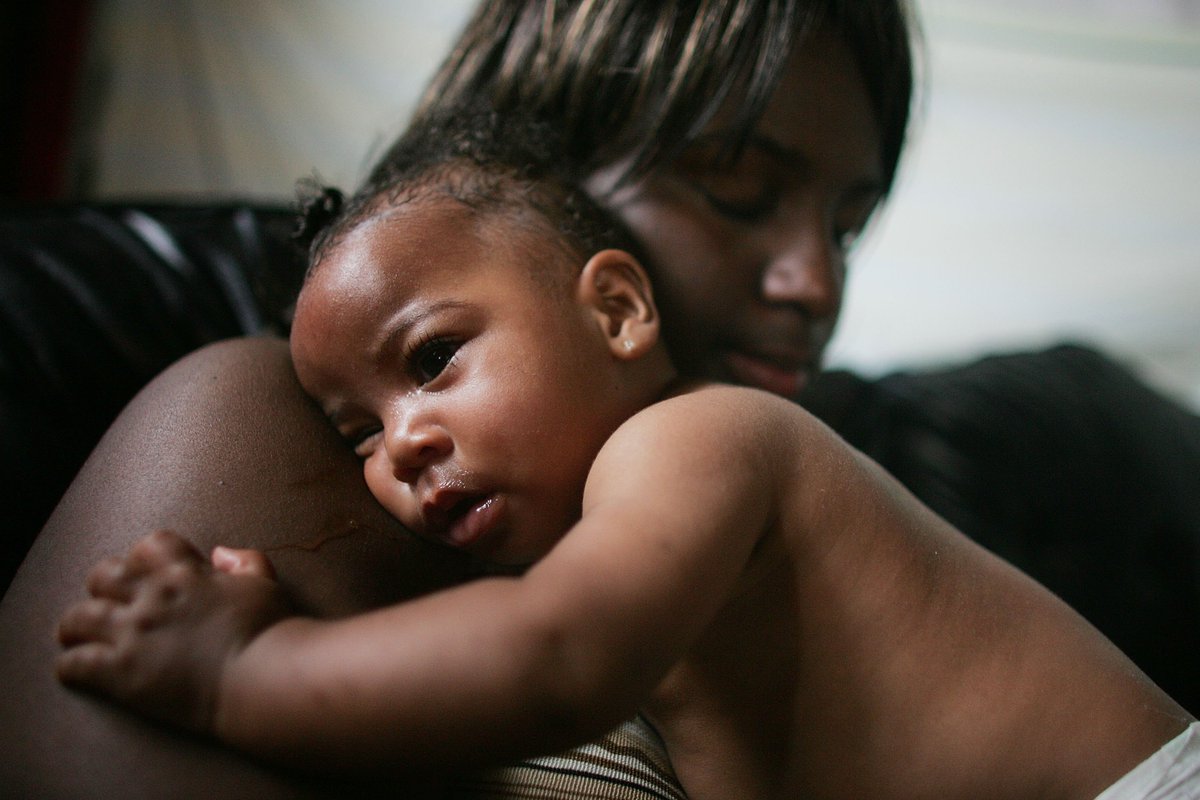The Covid-19 pandemic has exposed many longstanding injustices, economic and social, that make life unduly perilous for Black Americans.
There’s one that deserves more attention: How physicians treat patients very differently, depending on race https://trib.al/EXPvKy5 ">https://trib.al/EXPvKy5&q...
There’s one that deserves more attention: How physicians treat patients very differently, depending on race https://trib.al/EXPvKy5 ">https://trib.al/EXPvKy5&q...
For @TrevonDLogan, it’s personal:
“I’m a highly educated man living in one of the world’s richest nations... Yet it took me years of persistence and unnecessary suffering to get a digestive illness diagnosed" https://trib.al/EXPvKy5 ">https://trib.al/EXPvKy5&q...
“I’m a highly educated man living in one of the world’s richest nations... Yet it took me years of persistence and unnecessary suffering to get a digestive illness diagnosed" https://trib.al/EXPvKy5 ">https://trib.al/EXPvKy5&q...
It turns out he’s not alone: Evidence suggests that doctors often don’t take seriously the complaints of Black patients.
This prejudice has deadly consequences, and stands in the way of efforts to address health disparities https://trib.al/EXPvKy5 ">https://trib.al/EXPvKy5&q...
This prejudice has deadly consequences, and stands in the way of efforts to address health disparities https://trib.al/EXPvKy5 ">https://trib.al/EXPvKy5&q...
In antebellum America, enslaved Black women gave birth to some of the smallest babies ever observed.
This was due in part to inadequate diets, and in part to the treatment of pregnant slaves, who were forced to work within a week of giving birth https://trib.al/EXPvKy5 ">https://trib.al/EXPvKy5&q...
This was due in part to inadequate diets, and in part to the treatment of pregnant slaves, who were forced to work within a week of giving birth https://trib.al/EXPvKy5 ">https://trib.al/EXPvKy5&q...
After the end of chattel slavery, the mortality gap narrowed because of:
 https://abs.twimg.com/emoji/v2/... draggable="false" alt="🧼" title="Soap" aria-label="Emoji: Soap">Public sanitation
https://abs.twimg.com/emoji/v2/... draggable="false" alt="🧼" title="Soap" aria-label="Emoji: Soap">Public sanitation
 https://abs.twimg.com/emoji/v2/... draggable="false" alt="🩺" title="Stethoskop" aria-label="Emoji: Stethoskop">Medical care
https://abs.twimg.com/emoji/v2/... draggable="false" alt="🩺" title="Stethoskop" aria-label="Emoji: Stethoskop">Medical care
 https://abs.twimg.com/emoji/v2/... draggable="false" alt="🏥" title="Krankenhaus" aria-label="Emoji: Krankenhaus">Treatments for infectious diseases
https://abs.twimg.com/emoji/v2/... draggable="false" alt="🏥" title="Krankenhaus" aria-label="Emoji: Krankenhaus">Treatments for infectious diseases
 https://abs.twimg.com/emoji/v2/... draggable="false" alt="🏠" title="Haus" aria-label="Emoji: Haus">Improved living standards
https://abs.twimg.com/emoji/v2/... draggable="false" alt="🏠" title="Haus" aria-label="Emoji: Haus">Improved living standards
Yet as of 2010, the gap between Black and White mortality was still 5 years https://trib.al/EXPvKy5 ">https://trib.al/EXPvKy5&q...
Yet as of 2010, the gap between Black and White mortality was still 5 years https://trib.al/EXPvKy5 ">https://trib.al/EXPvKy5&q...
Many see increasing access to medical care as a solution. But it depends on the kind of care Black people get when they show up.
Unfortunately, the medical profession has always viewed Black bodies as inherently different from White ones https://trib.al/EXPvKy5 ">https://trib.al/EXPvKy5&q...
Unfortunately, the medical profession has always viewed Black bodies as inherently different from White ones https://trib.al/EXPvKy5 ">https://trib.al/EXPvKy5&q...
Black Civil War veterans were:
 https://abs.twimg.com/emoji/v2/... draggable="false" alt="➡️" title="Pfeil nach rechts" aria-label="Emoji: Pfeil nach rechts">No more likely to report pain or aches
https://abs.twimg.com/emoji/v2/... draggable="false" alt="➡️" title="Pfeil nach rechts" aria-label="Emoji: Pfeil nach rechts">No more likely to report pain or aches
 https://abs.twimg.com/emoji/v2/... draggable="false" alt="➡️" title="Pfeil nach rechts" aria-label="Emoji: Pfeil nach rechts">Twice as likely to be “doubted” by physicians
https://abs.twimg.com/emoji/v2/... draggable="false" alt="➡️" title="Pfeil nach rechts" aria-label="Emoji: Pfeil nach rechts">Twice as likely to be “doubted” by physicians
 https://abs.twimg.com/emoji/v2/... draggable="false" alt="➡️" title="Pfeil nach rechts" aria-label="Emoji: Pfeil nach rechts">15 times more likely to be described as “ignorant”
https://abs.twimg.com/emoji/v2/... draggable="false" alt="➡️" title="Pfeil nach rechts" aria-label="Emoji: Pfeil nach rechts">15 times more likely to be described as “ignorant”
 https://abs.twimg.com/emoji/v2/... draggable="false" alt="➡️" title="Pfeil nach rechts" aria-label="Emoji: Pfeil nach rechts">Three times as likely to be accused of “exaggerating” their illness https://trib.al/EXPvKy5 ">https://trib.al/EXPvKy5&q...
https://abs.twimg.com/emoji/v2/... draggable="false" alt="➡️" title="Pfeil nach rechts" aria-label="Emoji: Pfeil nach rechts">Three times as likely to be accused of “exaggerating” their illness https://trib.al/EXPvKy5 ">https://trib.al/EXPvKy5&q...
Such prejudices endure today. Recent research suggests that doctors treat Black people differently, relative to their White counterparts. They:
 https://abs.twimg.com/emoji/v2/... draggable="false" alt="💊" title="Tablette" aria-label="Emoji: Tablette">Prescribe fewer pain medications
https://abs.twimg.com/emoji/v2/... draggable="false" alt="💊" title="Tablette" aria-label="Emoji: Tablette">Prescribe fewer pain medications
 https://abs.twimg.com/emoji/v2/... draggable="false" alt="🩹" title="Pflaster" aria-label="Emoji: Pflaster">Offer fewer treatments, surgical and otherwise https://trib.al/EXPvKy5 ">https://trib.al/EXPvKy5&q...
https://abs.twimg.com/emoji/v2/... draggable="false" alt="🩹" title="Pflaster" aria-label="Emoji: Pflaster">Offer fewer treatments, surgical and otherwise https://trib.al/EXPvKy5 ">https://trib.al/EXPvKy5&q...
To truly end racial mortality gaps, health care must be unbiased.
This requires educating doctors about the dangers of prejudice, and changing systems that perpetuate and amplify it https://trib.al/EXPvKy5 ">https://trib.al/EXPvKy5&q...
This requires educating doctors about the dangers of prejudice, and changing systems that perpetuate and amplify it https://trib.al/EXPvKy5 ">https://trib.al/EXPvKy5&q...
Another solution would be to encourage more Black people to study medicine and become physicians.
Black doctors improve the health outcomes of their patients — Black newborns are much more likely to survive if their physician is Black as opposed to White https://trib.al/EXPvKy5 ">https://trib.al/EXPvKy5&q...
Black doctors improve the health outcomes of their patients — Black newborns are much more likely to survive if their physician is Black as opposed to White https://trib.al/EXPvKy5 ">https://trib.al/EXPvKy5&q...

 Read on Twitter
Read on Twitter
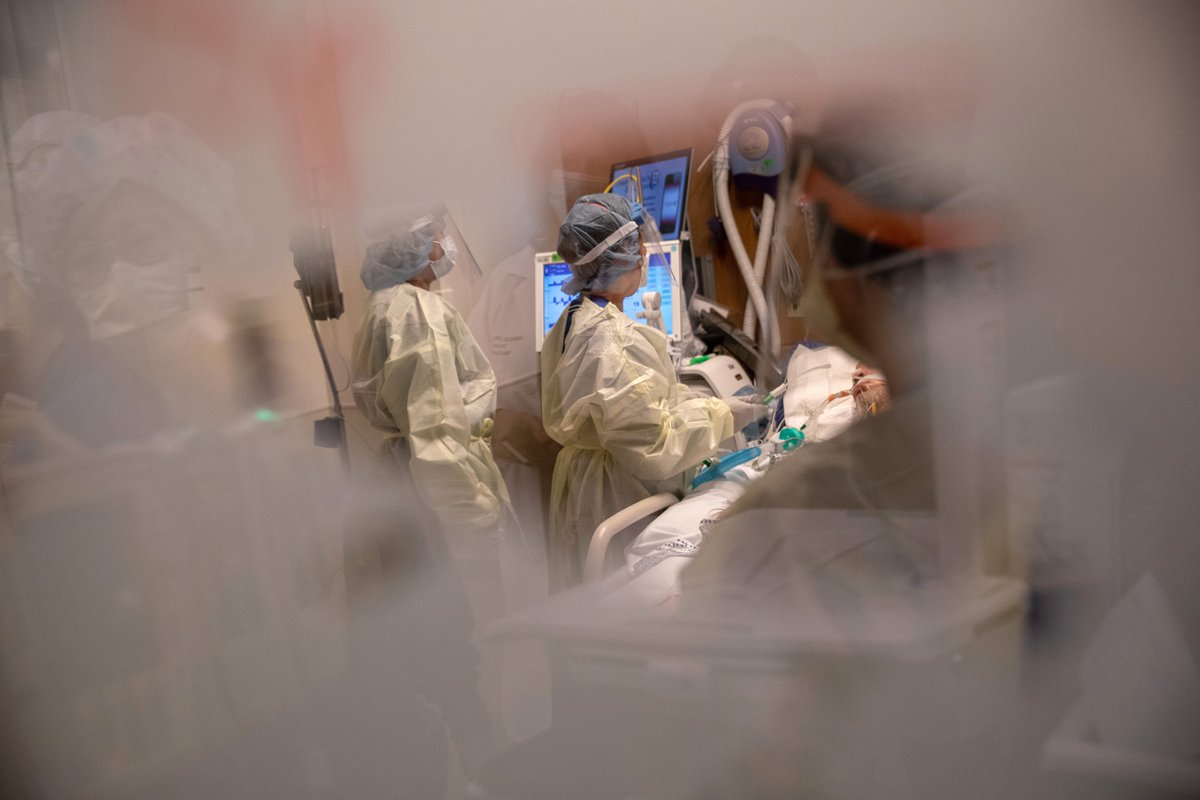
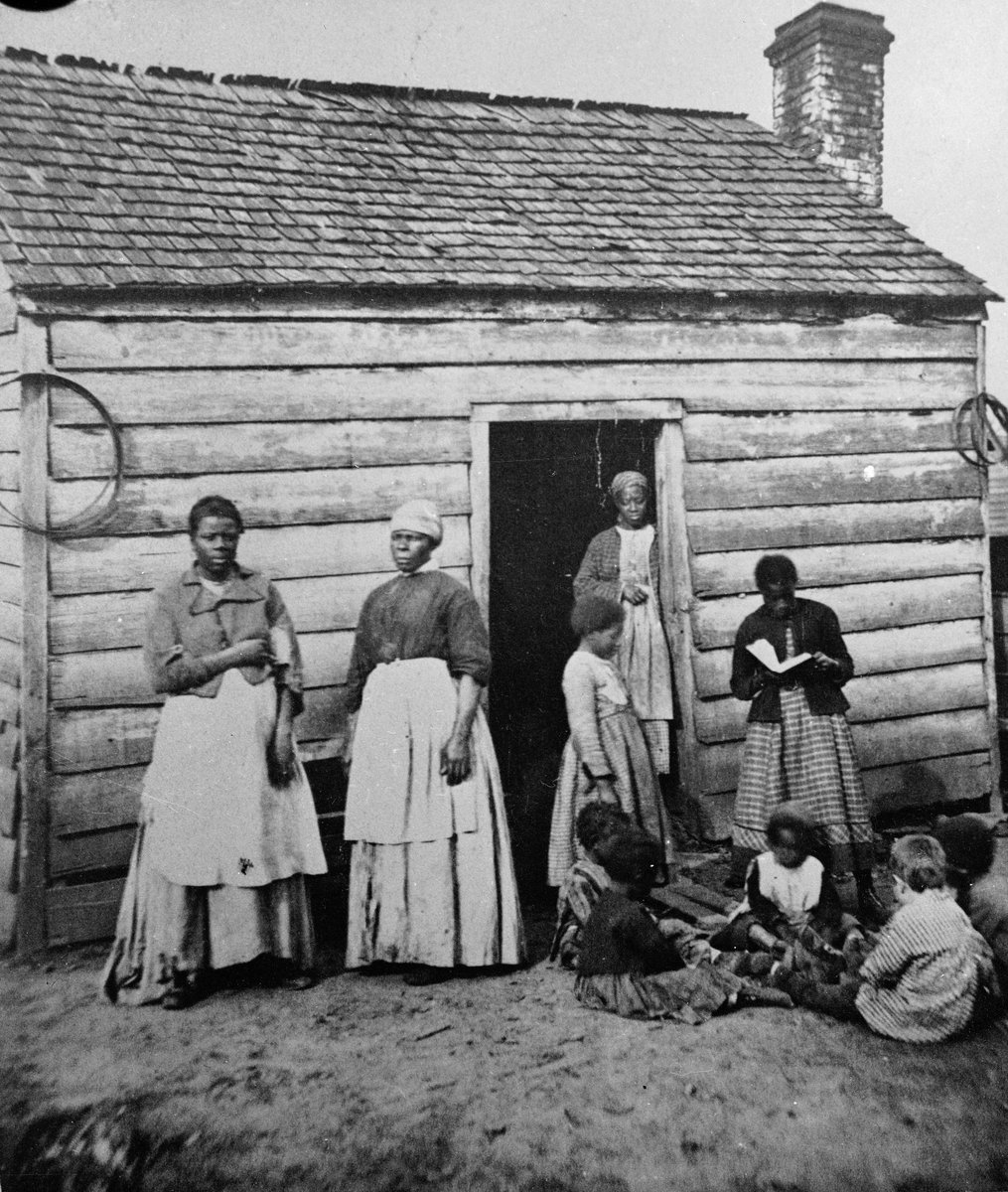
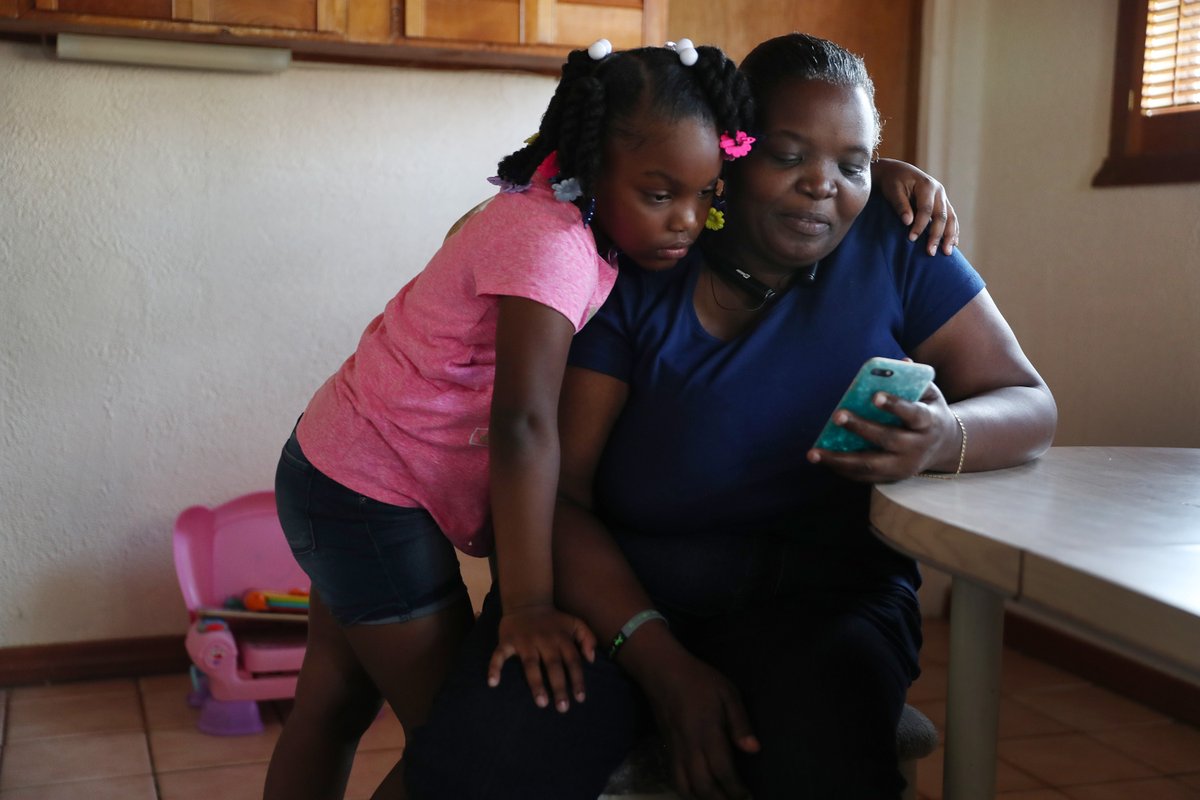 Public sanitationhttps://abs.twimg.com/emoji/v2/... draggable="false" alt="🩺" title="Stethoskop" aria-label="Emoji: Stethoskop">Medical carehttps://abs.twimg.com/emoji/v2/... draggable="false" alt="🏥" title="Krankenhaus" aria-label="Emoji: Krankenhaus">Treatments for infectious diseaseshttps://abs.twimg.com/emoji/v2/... draggable="false" alt="🏠" title="Haus" aria-label="Emoji: Haus">Improved living standardsYet as of 2010, the gap between Black and White mortality was still 5 years https://trib.al/EXPvKy5&q..." title="After the end of chattel slavery, the mortality gap narrowed because of: https://abs.twimg.com/emoji/v2/... draggable="false" alt="🧼" title="Soap" aria-label="Emoji: Soap">Public sanitationhttps://abs.twimg.com/emoji/v2/... draggable="false" alt="🩺" title="Stethoskop" aria-label="Emoji: Stethoskop">Medical carehttps://abs.twimg.com/emoji/v2/... draggable="false" alt="🏥" title="Krankenhaus" aria-label="Emoji: Krankenhaus">Treatments for infectious diseaseshttps://abs.twimg.com/emoji/v2/... draggable="false" alt="🏠" title="Haus" aria-label="Emoji: Haus">Improved living standardsYet as of 2010, the gap between Black and White mortality was still 5 years https://trib.al/EXPvKy5&q..." class="img-responsive" style="max-width:100%;"/>
Public sanitationhttps://abs.twimg.com/emoji/v2/... draggable="false" alt="🩺" title="Stethoskop" aria-label="Emoji: Stethoskop">Medical carehttps://abs.twimg.com/emoji/v2/... draggable="false" alt="🏥" title="Krankenhaus" aria-label="Emoji: Krankenhaus">Treatments for infectious diseaseshttps://abs.twimg.com/emoji/v2/... draggable="false" alt="🏠" title="Haus" aria-label="Emoji: Haus">Improved living standardsYet as of 2010, the gap between Black and White mortality was still 5 years https://trib.al/EXPvKy5&q..." title="After the end of chattel slavery, the mortality gap narrowed because of: https://abs.twimg.com/emoji/v2/... draggable="false" alt="🧼" title="Soap" aria-label="Emoji: Soap">Public sanitationhttps://abs.twimg.com/emoji/v2/... draggable="false" alt="🩺" title="Stethoskop" aria-label="Emoji: Stethoskop">Medical carehttps://abs.twimg.com/emoji/v2/... draggable="false" alt="🏥" title="Krankenhaus" aria-label="Emoji: Krankenhaus">Treatments for infectious diseaseshttps://abs.twimg.com/emoji/v2/... draggable="false" alt="🏠" title="Haus" aria-label="Emoji: Haus">Improved living standardsYet as of 2010, the gap between Black and White mortality was still 5 years https://trib.al/EXPvKy5&q..." class="img-responsive" style="max-width:100%;"/>
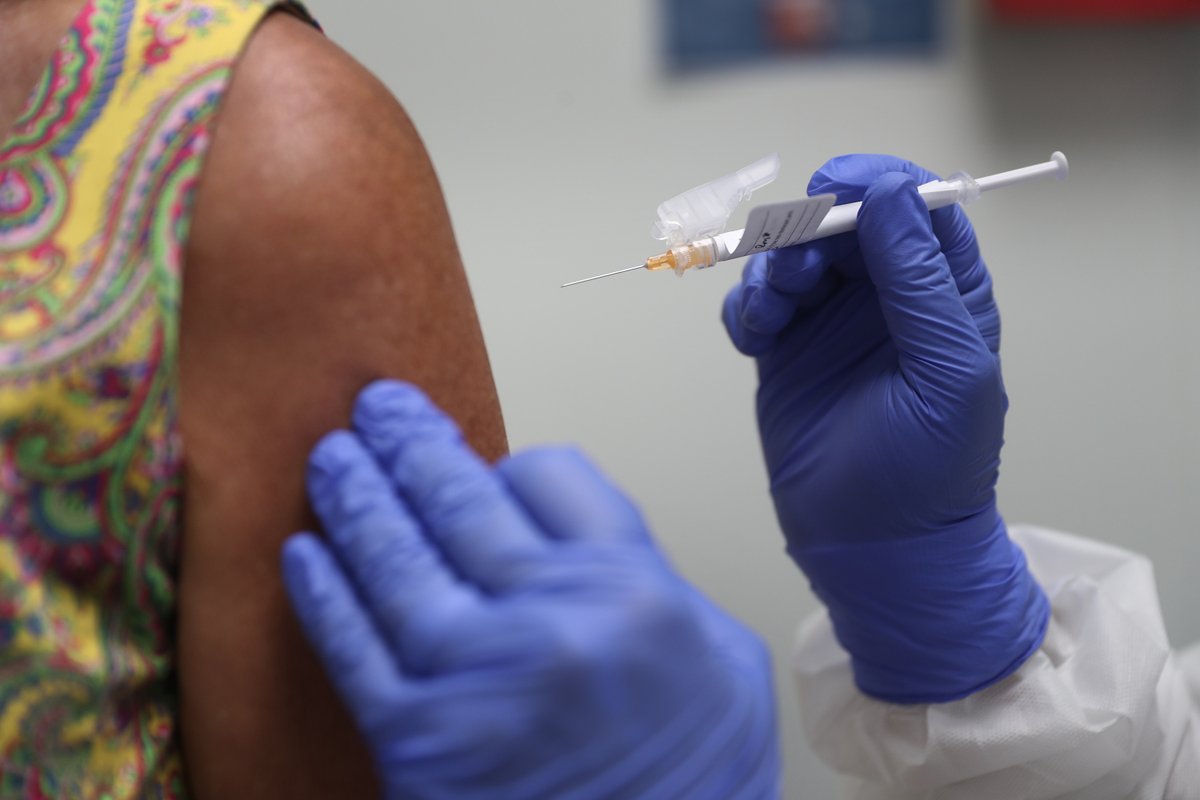
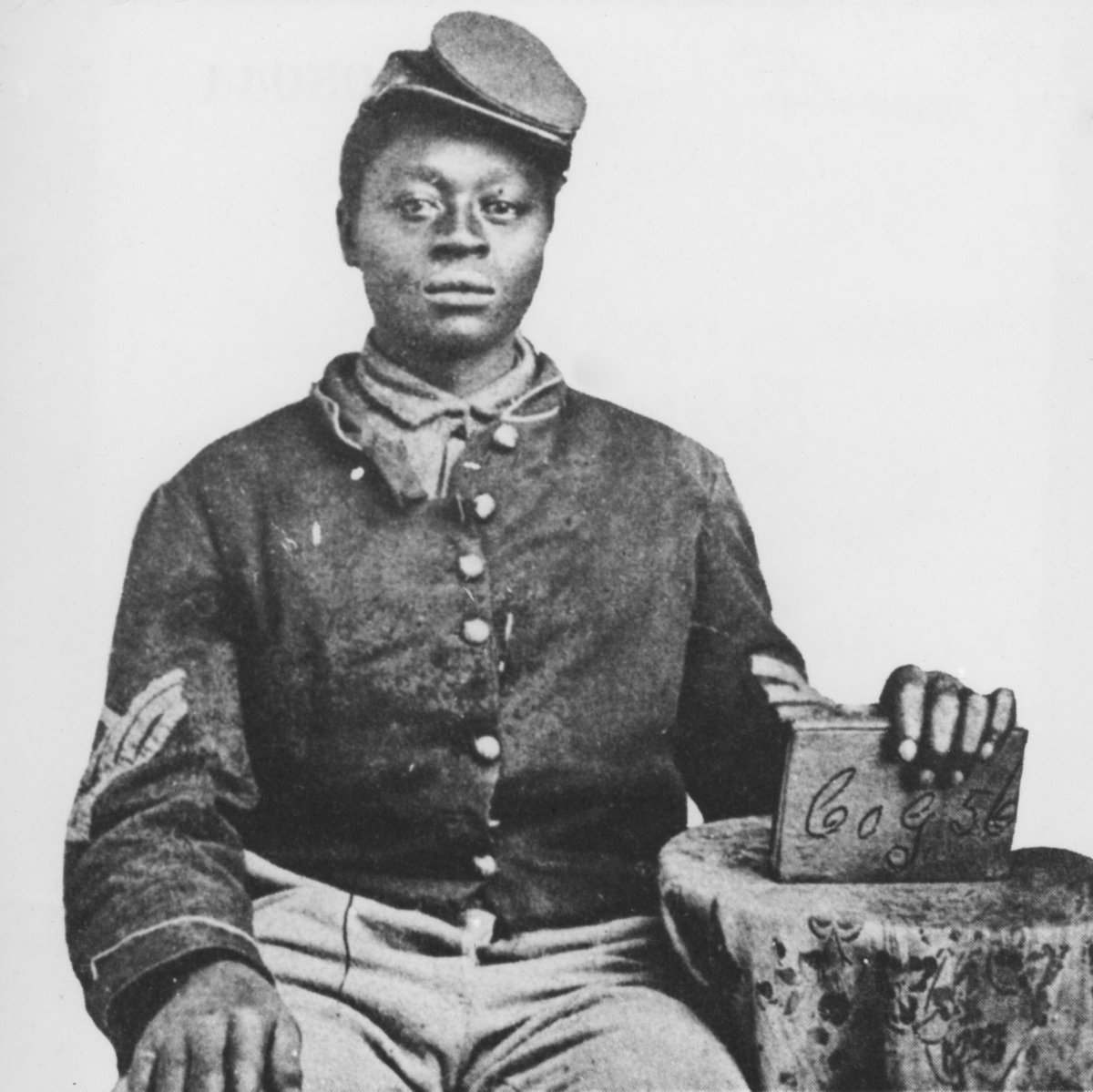 No more likely to report pain or acheshttps://abs.twimg.com/emoji/v2/... draggable="false" alt="➡️" title="Pfeil nach rechts" aria-label="Emoji: Pfeil nach rechts">Twice as likely to be “doubted” by physicianshttps://abs.twimg.com/emoji/v2/... draggable="false" alt="➡️" title="Pfeil nach rechts" aria-label="Emoji: Pfeil nach rechts">15 times more likely to be described as “ignorant” https://abs.twimg.com/emoji/v2/... draggable="false" alt="➡️" title="Pfeil nach rechts" aria-label="Emoji: Pfeil nach rechts">Three times as likely to be accused of “exaggerating” their illness https://trib.al/EXPvKy5&q..." title="Black Civil War veterans were:https://abs.twimg.com/emoji/v2/... draggable="false" alt="➡️" title="Pfeil nach rechts" aria-label="Emoji: Pfeil nach rechts">No more likely to report pain or acheshttps://abs.twimg.com/emoji/v2/... draggable="false" alt="➡️" title="Pfeil nach rechts" aria-label="Emoji: Pfeil nach rechts">Twice as likely to be “doubted” by physicianshttps://abs.twimg.com/emoji/v2/... draggable="false" alt="➡️" title="Pfeil nach rechts" aria-label="Emoji: Pfeil nach rechts">15 times more likely to be described as “ignorant” https://abs.twimg.com/emoji/v2/... draggable="false" alt="➡️" title="Pfeil nach rechts" aria-label="Emoji: Pfeil nach rechts">Three times as likely to be accused of “exaggerating” their illness https://trib.al/EXPvKy5&q..." class="img-responsive" style="max-width:100%;"/>
No more likely to report pain or acheshttps://abs.twimg.com/emoji/v2/... draggable="false" alt="➡️" title="Pfeil nach rechts" aria-label="Emoji: Pfeil nach rechts">Twice as likely to be “doubted” by physicianshttps://abs.twimg.com/emoji/v2/... draggable="false" alt="➡️" title="Pfeil nach rechts" aria-label="Emoji: Pfeil nach rechts">15 times more likely to be described as “ignorant” https://abs.twimg.com/emoji/v2/... draggable="false" alt="➡️" title="Pfeil nach rechts" aria-label="Emoji: Pfeil nach rechts">Three times as likely to be accused of “exaggerating” their illness https://trib.al/EXPvKy5&q..." title="Black Civil War veterans were:https://abs.twimg.com/emoji/v2/... draggable="false" alt="➡️" title="Pfeil nach rechts" aria-label="Emoji: Pfeil nach rechts">No more likely to report pain or acheshttps://abs.twimg.com/emoji/v2/... draggable="false" alt="➡️" title="Pfeil nach rechts" aria-label="Emoji: Pfeil nach rechts">Twice as likely to be “doubted” by physicianshttps://abs.twimg.com/emoji/v2/... draggable="false" alt="➡️" title="Pfeil nach rechts" aria-label="Emoji: Pfeil nach rechts">15 times more likely to be described as “ignorant” https://abs.twimg.com/emoji/v2/... draggable="false" alt="➡️" title="Pfeil nach rechts" aria-label="Emoji: Pfeil nach rechts">Three times as likely to be accused of “exaggerating” their illness https://trib.al/EXPvKy5&q..." class="img-responsive" style="max-width:100%;"/>
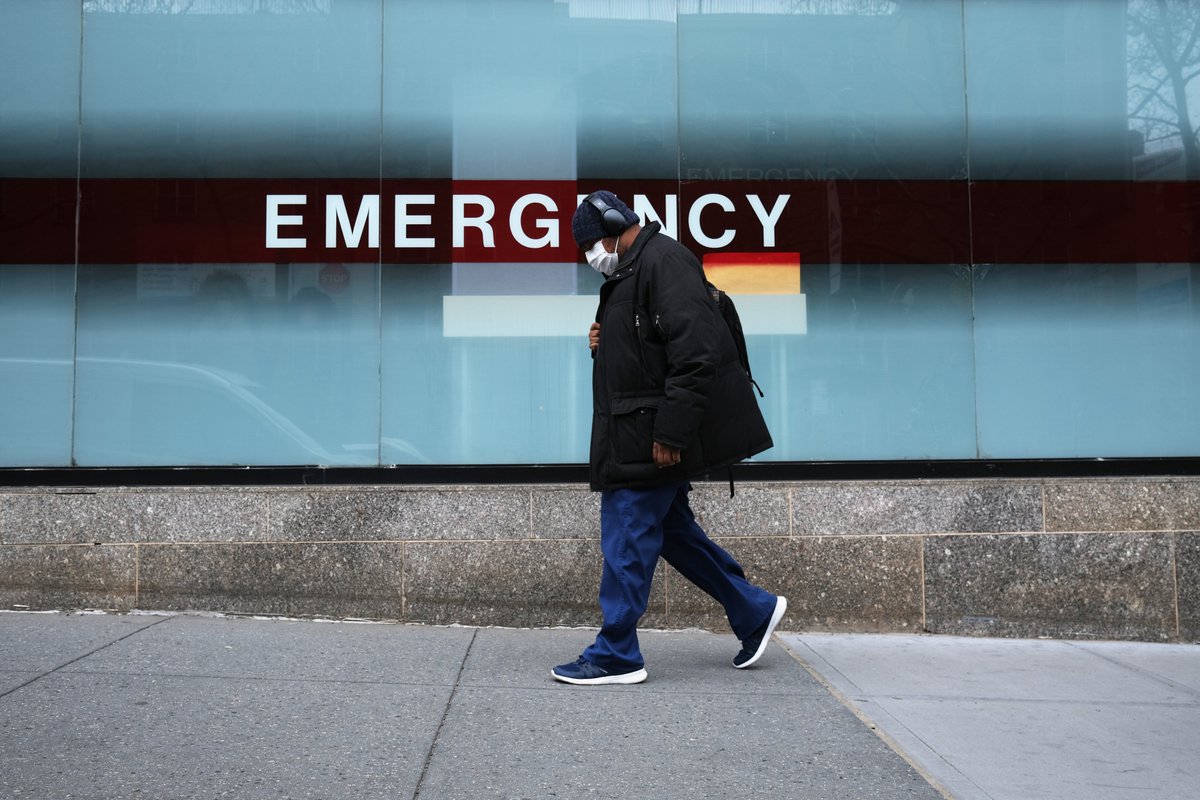 Prescribe fewer pain medicationshttps://abs.twimg.com/emoji/v2/... draggable="false" alt="🩹" title="Pflaster" aria-label="Emoji: Pflaster">Offer fewer treatments, surgical and otherwise https://trib.al/EXPvKy5&q..." title="Such prejudices endure today. Recent research suggests that doctors treat Black people differently, relative to their White counterparts. They:https://abs.twimg.com/emoji/v2/... draggable="false" alt="💊" title="Tablette" aria-label="Emoji: Tablette">Prescribe fewer pain medicationshttps://abs.twimg.com/emoji/v2/... draggable="false" alt="🩹" title="Pflaster" aria-label="Emoji: Pflaster">Offer fewer treatments, surgical and otherwise https://trib.al/EXPvKy5&q..." class="img-responsive" style="max-width:100%;"/>
Prescribe fewer pain medicationshttps://abs.twimg.com/emoji/v2/... draggable="false" alt="🩹" title="Pflaster" aria-label="Emoji: Pflaster">Offer fewer treatments, surgical and otherwise https://trib.al/EXPvKy5&q..." title="Such prejudices endure today. Recent research suggests that doctors treat Black people differently, relative to their White counterparts. They:https://abs.twimg.com/emoji/v2/... draggable="false" alt="💊" title="Tablette" aria-label="Emoji: Tablette">Prescribe fewer pain medicationshttps://abs.twimg.com/emoji/v2/... draggable="false" alt="🩹" title="Pflaster" aria-label="Emoji: Pflaster">Offer fewer treatments, surgical and otherwise https://trib.al/EXPvKy5&q..." class="img-responsive" style="max-width:100%;"/>
